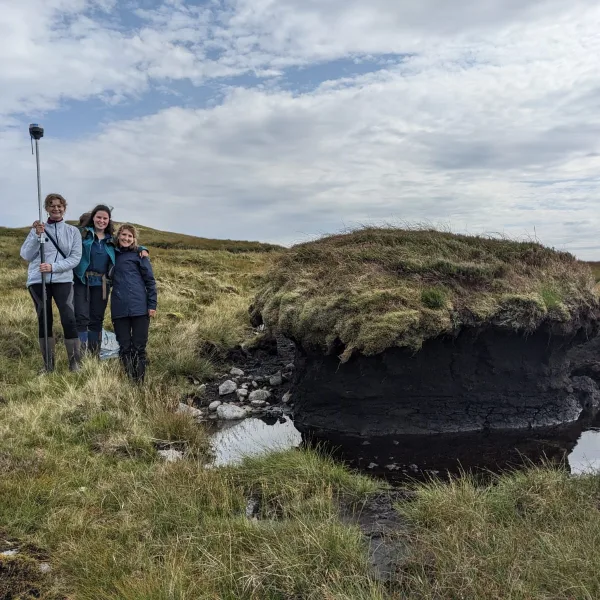Theme five: Fostering Human and Social Development, calls out the often-neglected component, that of the power of people in different sectors, across public, civic and private organisations, the power of people to collectively develop and design tangible co-benefits that work at system, societal and community level cannot be underestimated. Relationship building and the strengthening of the societal systems in which we live and work, is at the heart of this theme.
Our combined climate, environment and health data tells us with absolute certainty that the future will be very different from the past. The first objective of the theme ‘promoting resilient health systems’, asks us to consider whose futures will become rapidly diminished if we take no action, and what we can do to design and develop systems and services that strengthen social cohesion and wellbeing, while simultaneously reducing inequalities.
How every nation cares for the health of its people has been the signature of that nation. Now, how nations grasp the opportunities of the Belém Health Action Plan for the Adaptation of the Health Sector to Climate Change,1 to build equitable solutions inclusive of all, and especially those most vulnerable, will be the signal of turning from fear, to fostering win-win solutions for climate and health.
Approach
Our overarching three-fold approach to building health resilience at the University of Edinburgh speaks directly to the action lines of the Belem Health Action Plan, namely: Surveillance and Monitoring; Evidence-Based Policy Strategy; and Capacity Building and Innovation and Production.
Curating real-time local evidence on the changing nature of the types, the prevalence, and the complications of diseases and their consequences, is essential. Though the determinants of healthiness sit for the most part outside health systems, a strong health system is essential for protecting health, preventing disease and enabling flourishing.
Almost all health systems were configured to function within what was assumed to be a stable, predictable climate and to respond to a disease portfolio characterised by commonly presenting diseases and illnesses. Health systems manage the diseases of the present, not the diseases of the future.

Changing health
We know our changing climate is changing health directly, through the immediate effects of adverse weather events such as storms, droughts, floods, cyclones, fires and heatwaves, causing illness, injury and death. We know it is also changing health indirectly, through rising vector-borne, food- and water-borne disease, malnutrition, and increasing mental illness; pollutants in the air from the drivers of climate change are causing more respiratory illness, strokes, cancers and heart disease; and through eco and socio-mediated effects of these adverse events seen in rising poverty, and inequitable access to livelihood support, alongside increasing conflict, displacement and migration.
Edinburgh Infectious Diseases2, the UK’s largest network of scientists, is producing global evidence banks on all these impacts, challenging us to recognise how their interactions are creating new wicked challenges such as AMR3.
Working with Universiti Malaya and seven South Asian partners, the RESPIRE4 consortium are not only collecting data on the lived experiences of climate impacts, including the effect of harvesting fires on air pollution, increases in paper mulberry pollen, and the consequences of flooding on respiratory disease, but are co-designing regional solutions.
Health System Resilience requires readiness. Our work, The role of open standards in catalysing knowledge transfer to deliver climate adaptive care5, shows the value of collecting live patient data over time and overlaying this with climate and environmental data to establish patterns and prepare services to respond effectively. Applying AI capabilities to digital health ecosystems to collect and interpret sensitive climate-related changes offers opportunities for health systems to design timely locale-specific care in response to increasing adverse weather events.
Intersectoral policies and intersectoral education
The challenge of the climate and health community has been our tendency to speak with one voice to ourselves. The health-environment nexus6 asks the questions of how we work together not simply to build individual lines of capacity, but to create win-win opportunities where investments deliver co-benefits. The Policy Guide7, co-developed with the International Institute for Social Development, provides a toolkit of shared language across the UN global policy agenda.
The Scottish National Health Service, recognising the complexities and interconnectedness of health system shocks, has set in place pre-emptive interventions and adaptive protocols relevant not only to health services but to every industry, agency and public service. Our contributions into Scotland’s Chief Medical Officer (CMO) Annual Reports Realistic Medicine – Doing the right thing8 changes the dynamics of who hears and who can take responsibility for health. Systems can only become resilient if everyone understands that the climate crisis is a health crisis. Financiers, industry leaders, journalists, energy experts, urban designers, along with health practitioners have joined our MSc Planetary Health9 to understand how to anticipate risk and read shocks, and how to embed compassionate methodologies which care for people and planet, and drive an economy in service of both, rather than one which is driving risk.
Health system resilience also comes from recognising that the climate emergency is a socioeconomic emergency, where social inequalities will exacerbate health inequalities. Livvy Swann, a paediatrician and data scientist, is breaking new ground in understanding how climate-related damp housing impacts on young children’s lungs, leading to respiratory infections.10
Investing in innovations, technologies, architecture, infrastructure and nature-based solutions to reduce the carbon emissions of the health system and service as a whole
The British Medical Journal notes that: “If the healthcare sector was a country, it would be the fifth largest emitter on the planet”. An estimated five per cent of the UK’s greenhouse gas emissions come from the health service. The NHS is the UK’s largest public sector energy user, with the bulk of energy used in secondary and tertiary-care facilities. This, coupled with transport to and from health services, and medicines, together constitute the majority of emissions. Reducing hospital usage is central to a resilient health system. Innovations in AI offer part of the solutions.
The Advanced Care Research Centre11 has combined knowledge from medicine, engineering, informatics and social sciences to design programmes supporting older people to live for longer and live more sustainably, outside of hospitals and high-dependency units. Health systems are in transition; our response is to work with the opportunities that being in a transitional state offers, and to shape the transitional pathway towards improved wellbeing and the conditions for flourishing and thriving.

COP and the University of Edinburgh
Explore how we’re mobilising research and innovation to turn pledges into progress.
This article was first published in COP30 Advancing Action Brochure on 10 November 2025.
Image credits: people wearing masks to shield against pollution: Getty Images/Phynart Studio, doctor earch: Getty Images/hocus-focus
- Belém Health Action Plan for the Adaptation of the Health Sector to Climate Change ↩︎
- Who we are | Edinburgh Infectious Diseases ↩︎
- Tackling AMR in Edinburgh ↩︎
- What is RESPIRE? ↩︎
- The role of open standards in catalysing knowledge transfer to deliver climate adaptive care | npj Digital Medicine ↩︎
- The health–environment nexus: global negotiations at a crossroads ↩︎
- Health in the Global Environmental Agenda: A policy guide ↩︎
- Realistic Medicine – Doing the right thing: Chief Medical Officer annual report 2022 to 2023 ↩︎
- Planetary Health MSc ↩︎
- Homes, Heat and Healthy Kids Study | Usher Institute ↩︎
- Advanced Care Research Centre | Usher Institute ↩︎





